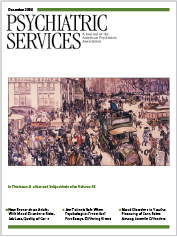Mourning Ruby
Mourning Ruby is a novel about self and loss, grief and fragmentation, guilt, love, sublimation, and, in the end, adaptation through the power of knowing one's story. Surprisingly, for all its weight of content and scarcity of real-time action, it is very satisfying to read.
Helen Dunmore has created for the reader a chance to experience the subjectivity of the narrator, Rebecca, as she comes to know, through telling us, about her birth and abandonment, the abrupt and shattering loss of Ruby, her only child, and the power of decency, love, and friendship in the face of tragedy. The story is well plotted, although what ties the plot together is affective connection and associative theme rather than the advancement of the story in a more usual sense. The novel proceeds through stories linking stories, forming a larger, deeper story that is felt as much as cognitively understood.
Rebecca's story is shaped by her discovery of the stories of others—her hotelier boss, Mr. Damiano; her neonatologist husband, Adam; and her brotherlike friend, Joe, a scholar of Russian history who turned novelist to find his own story and Rebecca's. Their stories thread through tent circuses, struggles to save the tiniest of babies, the suicide of Stalin's wife and Stalin's brutal but enduring impact on contemporary Russia, and sky battles and brothels of World War I.
For the psychoanalyst or analysand, this process is familiar. Something true emerges for Rebecca—the narrator—and for the reader—the "listener." The truth is subjective, difficult to articulate, but, by the end of the novel, known in some sense that is not easily measured objectively. As the novel ends, Rebecca could well be talking to the reader when she says, "This is where we'll separate. You'll frown or smile for the last time. Maybe you'll even say something, though I'm beyond imagining what those words might be. And then you'll go your way and I'll go mine."
Dunmore pulls this off with sparse language that helps the novel retain a sense of dreamlike primary thought process.
Dr. Walker is clinical assistant professor of psychiatry and behavioral sciences at the University of Washington in Seattle and a member of the faculty of the Seattle Psychoanalytic Society and Institute.



